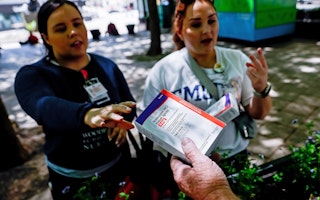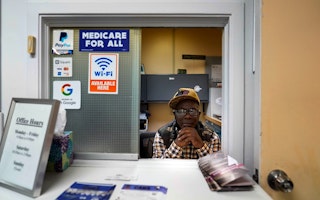Will the United States Lead or Follow on International Drug Reform?
By Kasia Malinowska
More than three years ago, the Global Commission on Drug Policy urged the world to recognize that the war on drugs has failed and to consider policies that would reduce violence, decrease mass incarceration, and promote health.
Since then, sitting presidents and premiers, mainly from Latin America, have called for a review of the entire drug control system and for drug-control reform to figure prominently in the international agenda. For example, the UN will debate the drug control regime in 2016, and the Organization of American States (OAS) will make drug policy a central theme of its meeting in mid-September.
The OAS meeting could be a particularly important moment for the United States to meaningfully engage in the debate. It would come as the White House welcomes a new drug czar, Michael Botticelli, who may bring fresh thinking to the role. Botticelli has a background in public health, which is critical for the job.
In addition, the Office of National Drug Control Policy, which Botticelli is heading, now says it can support health-based approaches to drugs, moving away from the “war on drugs” terminology. The office has also spoken out in favor of common-sense interventions, like the distribution of the overdose-reversing drug naloxone.
But Botticelli needs to speak louder, engaging the American apparatus in big debates. On many fronts, those debates are proceeding without U.S. leadership.
In early September, the Global Commission on Drug Policy—composed of leaders in the fields of politics, business, and the arts—put forward a new set of recommendations on drug policy. They urge governments to:
- Put health first and provide adequate resources for health services;
- Ensure access to essential medicines and pain control;
- End the senseless criminalization and incarceration of minor, non-violent drug offenders and target strategies to help dependent people access treatment;
- Consider regulation of drug markets to undermine the staggering profits reaped by criminal gangs;
- Adapt enforcement strategies to target the most violent and disruptive criminal groups rather than punish low-level players;
- Refuse to shy away from the transformative potential of responsible regulation.
Many of these recommendations are already in force in other parts of the world or are slowly taking shape in local jurisdictions here. They are far from radical.
Latin American leaders pushing the issue are clearly hoping for some cooperation from the United States. Colombia’s President Juan Manuel Santos, for example, has consistently affirmed that the search for alternatives should include discussions about legalization—but that all decisions should reflect international consensus.
Without engagement from Washington, the debate risks lurching and stalling. This is where Botticelli’s agency has so far fallen short. Despite its support for health-based interventions, the office seems more ambivalent about sweeping reforms such as the sensible regulation of drugs like cannabis or even support for the words “harm reduction” in international documents.
Momentum for these changes will continue at OAS and beyond, and the U.S. government could be a critical force in making them take hold. If action follows the new vernacular, then it represents the beginning of something very important.
We just need the government to take major steps toward realizing health-based approaches to drugs, and to assert its support for humane policies on the international stage. That could make Botticelli’s appointment herald a new era for people who use drugs, and for their communities.

Kasia Malinowska is director of Drugs Policy at the Open Society Foundations.


